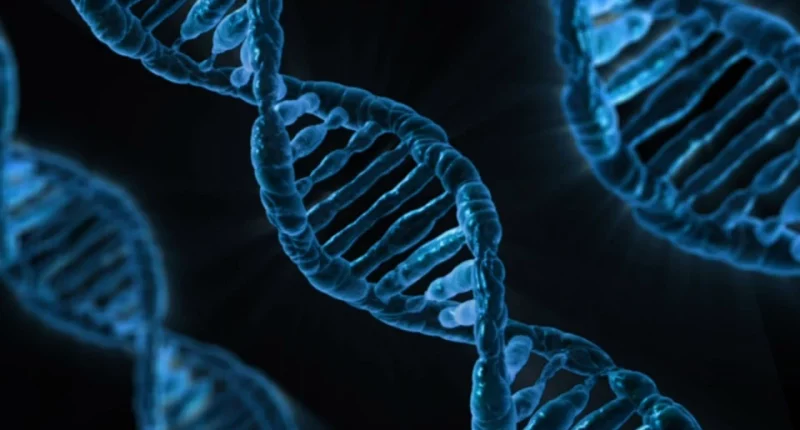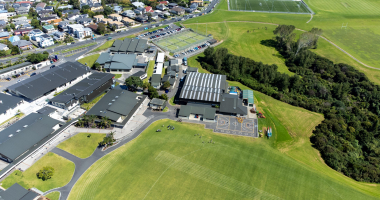Ever wondered how COVID-19 works? How entire organ systems work together in order to regulate your body temperature when you get sick? Maybe you’ve wondered how human beings fit within our ecosystem, or how to classify organisms…
If you have, congratulations! You’re a biologist!
Because beyond the parts of the leaf and structure of the eyes we learn in junior science classes, the topic of biology contains much more than meets the eye. The key concepts that you will come across include cells as the units of life, biochemical processes, genetics, and natural selection. And while biology is typically regarded as a series of topics that seem distant from one another, it is extremely important that we are able to recognise that they are all interlinked (see Figure A).
Within the expanse of biology, students at Macleans are offered one of the most fascinating subjects that concern the fundamental observations of human existence.
So, what is biology?
Commonly known as the study of life, biology is one of the broadest subjects available in our school curriculum. It spans from microscopic cells to full ecosystems consisting of millions of individual organisms. There are mechanisms that work in prokaryotic cells that are tinier than you could ever imagine, chemical reactions that occur in each of your 36 million cells that help you function and live your day-to-day lives.
Ever seen those huge biochemical process diagrams that look like train maps? They show how every biological process is connected to some degree, the one below illustrates the Krebs Cycle, which occurs during respiration. It shows you how chemicals from the food you eat can undergo a series of reactions in your cells to generate the energy that you need to understand and process this very article!

Figure A (Thankfully, we don’t need to memorise this…)
The Beauty of Biological processes (why you should definitely study it)
Biology helps you understand the world around you
Ever wonder why your body sweats during vigorous exercise? It’s because your body is trying to regulate its temperature… Rather, it’s an example of homeostasis which is the process in which active feedback mechanisms are used in order to maintain a set point or average – in this case, it is your ideal body temperature of 37 degrees, to prevent your body from overheating and cooking itself… (grim, I know).
Likewise, if we were never able to understand why infectious diseases such as COVID-19 spread the way that they do, millions of people would die.
It gives us a better understanding of how our bodies function, providing us with answers as to why we get sick and what we can do to avoid being sick. Biology helps us realise how our environment may impact our health, how genetics may play an integral role in our lives and how humans interact with other organisms.
Biology prepares you for future professions
Although university courses may not always have a biology prerequisite, if you are interested in studying anything science-related, you’ll likely need to have some basic biological knowledge. Biology isn’t all plants and animals… Not only does it prepare you for professions such as medicine, but biology has other branches such as bioinformatics, environmental science, epidemiology, biotechnology and even culinary and agricultural career pathways.
For many students, a strong understanding of the basics of biology can provide many different fulfilling career choices. This is because biology is a broad and versatile field that exists beyond traditional career pipelines.

Now, what does this look like at Macleans?
Junior science offers a small teaser into the larger topics of biology, for example, the structure of a leaf learnt in year nine science is integral to the plant transport topic in AS. While the junior science course only scrapes the surface of the basics of biology, it still gives students a chance to develop a curiosity towards the topic. Thus, it becomes much more in-depth at Level 2 and 3, AS and A Level as well as Scholarship.
Some of the most intriguing topics featured in both curricula include:
CAIE:
- Cell structure
- The mitotic cell cycle
- Transport in plants and mammals
- Infectious disease
- Immunity
- Energy and respiration
- Selection and evolution
… and about 12 more
NCEA:
- Homeostasis and osmoregulation
- Processes of evolution, speciation and patterns of evolution
- Hominin evolution
- Human manipulation of genetic transfer
Once the mitochondria goes from “the powerhouse of the cell” to “the site of oxidative phosphorylation”, you will know that you have entered the world of more advanced biology (if that is true for you, good luck!!)
If you’re a junior and curious about taking the subject to a more advanced level, talk to your teachers, your seniors, or your peer support and I’m sure that they’ll be more than happy to talk about their experience with the topic.
23rd July, 2024
Written by Amelia Hu, edited by Aaron Huang








